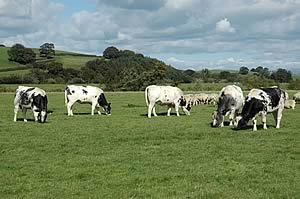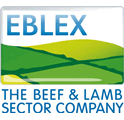02/03/09
A significant worsening of the bluetongue situation across mainland Europe over the past year makes it vital for the UK livestock industry to maintain the highest possible guard against the virus this season, warns EBLEX Ltd, the industry body for beef and lamb levy-payers in England.
Good initial uptake of bluetongue vaccination in the priority areas of the country and limited long distance midge movement over the dull, wet summer served to prevent the serotype of the virus seen in 2007 – BTV-8 – from becoming established in England and Wales in 2008. As a result, confirmed infections have so far been confined to fewer than 150 premises.
However, the virus spread to more than 26,000 farms in France last season, with nearly 2500 new cases reported in Germany and infections identified in a growing number of other European countries. At the same time, another serotype (BTV-1) reached northern France and two further types (BTV-6 and 11) have recently been identified in Holland and Belgium.
Under these circumstances, the risk of re-introduction from the continent – both via airborne midges and in imported stock – remains very high; and with it the threat to cattle and sheep producers across the country. Indeed, some animals imported into various parts of the country from Europe in recent months have tested positive for BTV-8. Furthermore, the first UK cases of BTV-1 were detected in a batch of cattle imported from France in November.
With French researchers reporting mortality rates of up to 25% in sheep, 16% in dairy cows and 13% in beef suckler herds from BTV-8, serious direct effects on short-term business profitability and still-to-be-quantified long-term impacts through decreased fertility, it is clearly critical the livestock industry does everything possible to prevent active bluetongue virus circulation in the country.
Defra is underwriting some 12 million doses of the existing BTV-8 vaccine for use in 2009, with further supplies of all three authorised vaccines available from manufacturers. It is also in discussion with developers and manufacturers to encourage applications for provisional marketing authorisations for vaccines against BTV-1 should these be needed.
To keep bluetongue at bay EBLEX strongly advises cattle and sheep producers across the country to maintain the highest possible levels of BTV-8 vaccination throughout 2009, pointing out that animals vaccinated in 2008 will need a booster jab this season, and urging initial vaccination before midges become active in the spring.
EBLEX also stresses the continued need for vigilance, urging sheep producers in particular to report any suspicions of infection to their local Animal Health Office without delay. Equally, while Defra tests all susceptible animals imported to the UK from continental Europe for all strains of the virus, importers must appreciate that effective bluetongue protection demands they take particular care, with imports from infected areas always presenting a possible risk.
 Dutch Farmer to Highlight Bluetongue Impact at Skipton Dutch Farmer to Highlight Bluetongue Impact at Skipton
 New Concept for Sheep Parasite Control Launched by Fort Dodge Animal Health New Concept for Sheep Parasite Control Launched by Fort Dodge Animal Health
 RABDF Calls for Import Ban on Livestock from All BT Restricted Zones RABDF Calls for Import Ban on Livestock from All BT Restricted Zones
|



